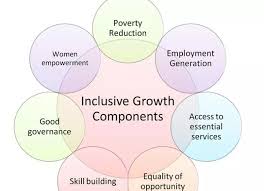Introduction
Cooperatives play a pivotal role in addressing global challenges and driving inclusive, sustainable development. As member-owned, democratically governed organizations, co-ops operate across diverse sectors (agriculture, finance, healthcare, education, and energy), empowering communities from the ground up. With their core principles closely aligning with the United Nations’ Sustainable Development Goals (SDGs), cooperatives offer practical, scalable solutions to eradicate poverty, promote equality, ensure access to essential services, and foster environmental sustainability. Their ability to combine social impact with economic resilience makes them powerful agents of change in the global push toward a fairer and more sustainable future.
Cooperative Principles and SDG Alignment
Cooperatives are unique business models grounded in values and principles that directly support sustainable development. Unlike traditional corporations that prioritize profits, cooperatives focus on the well-being of their members and communities. This makes them natural partners in achieving the Sustainable Development Goals (SDGs). The International Co-operative Alliance (ICA) has established a set of guiding principles that help cooperatives navigate their operations ethically and inclusively, creating real social impact across local and global levels.
ICA Principles: The Foundation of Cooperative Action
The ICA’s 7 principles form the ethical backbone of all cooperative organizations. These are:
- Voluntary and Open Membership – Cooperatives are open to all, ensuring non-discrimination and inclusivity.
- Democratic Member Control – Each member has one vote, encouraging equality and participation.
- Member Economic Participation – Members contribute equitably and control the capital of the co-op.
- Autonomy and Independence – Cooperatives remain self-governing even when entering partnerships.
- Education, Training, and Information – Co-ops invest in learning to empower members and communities.
- Cooperation Among Cooperatives – Strengthening solidarity and collective impact across the sector.
- Concern for Community – Every action by the co-op considers long-term community and environmental well-being.
These principles not only differentiate cooperatives from profit-driven companies but also mirror the spirit and goals of sustainable development.
Mapping Co-op Values to SDGs
The cooperative model organically aligns with many of the 17 SDGs. For example:
- SDG 1 (No Poverty): Through financial inclusion and profit-sharing, co-ops lift communities out of poverty.
- SDG 2 (Zero Hunger): Agricultural cooperatives support food production, fair trade, and equitable access.
- SDG 5 (Gender Equality): Women-led and inclusive co-ops foster empowerment and leadership opportunities.
- SDG 8 (Decent Work and Economic Growth): Co-ops generate sustainable employment and protect labor rights.
- SDG 13 (Climate Action): Green cooperatives invest in renewable energy and sustainable practices.
This alignment isn’t incidental; it’s a direct result of the co-op ethos that values people and the planet equally. Each cooperative activity, whether it’s distributing profits, managing resources, or making decisions, is a step toward achieving one or more SDGs.
Democratic Governance and Social Responsibility
A cornerstone of cooperative identity is democratic governance. Unlike traditional corporate hierarchies, co-ops operate on a one-member, one-vote basis, ensuring that decisions reflect the collective will. This participatory model fosters a culture of transparency, trust, and accountability, which are key ingredients for long-term, sustainable success.
Moreover, cooperatives exhibit strong social responsibility. They reinvest profits into community projects, offer affordable services, and actively seek to reduce social inequality. Many co-ops fund local health initiatives, educational programs, and green infrastructure, directly contributing to a better quality of life for all.
By embedding democracy and community care into their structure, cooperatives serve as living examples of how ethical business practices can accelerate progress toward the SDGs. They not only address immediate community needs but also nurture resilience and equity for future generations.
Economic Empowerment and Poverty Reduction

Cooperatives are powerful engines of economic empowerment, particularly in underserved and marginalized communities. Their unique model, centered on mutual aid, democratic ownership, and equitable distribution of resources, enables individuals to take control of their livelihoods.
By fostering inclusive economic systems and providing sustainable income opportunities, cooperatives make a significant contribution toward achieving Sustainable Development Goal 1 (No Poverty) and Goal 8 (Decent Work and Economic Growth). Let’s explore how they achieve this through job creation, financial inclusion, support for small enterprises, and community reinvestment.
Job Creation
One of the most direct impacts of cooperatives is their ability to generate employment. Unlike traditional enterprises that prioritize profit maximization, cooperatives aim to serve their members, often reinvesting revenues into job-generating activities. Globally, cooperatives support over 280 million jobs, representing nearly 10% of the world’s employed population. These jobs are often more secure, community-based, and aligned with ethical labor practices.
Cooperatives flourish in sectors like agriculture, retail, manufacturing, and services, where informal labor is prevalent. By organizing workers, particularly in rural and informal sectors, cooperatives provide formal work structures, stable wages, and collective bargaining power, thereby significantly reducing vulnerability and promoting social mobility.
Financial Inclusion
Access to finance is a cornerstone of economic development. Yet, millions of people globally, especially in rural and low-income areas, remain unbanked. Cooperatives like credit unions and savings & loan associations fill this gap. These financial cooperatives offer essential banking services such as loans, savings, insurance, and financial literacy programs.
Because they are community-owned, financial cooperatives often operate with more flexible requirements, lower interest rates, and member-friendly terms. They foster trust within communities and help individuals, especially women, youth, and informal workers, build financial resilience. This financial inclusion not only alleviates poverty but also stimulates local economies by empowering people to invest in homes, education, and enterprises.
Support for Small Enterprises
Micro, small, and medium-sized enterprises (MSMEs) are vital for economic growth but often face hurdles such as lack of funding, technical know-how, and market access. Cooperatives act as a support network for these small-scale ventures. By pooling resources, co-ops allow members to share equipment, reduce input costs, access bulk purchasing power, and collectively market their products.
For example, artisan cooperatives enable local producers to access domestic and international markets, while agricultural co-ops help farmers negotiate fair prices and secure storage or processing facilities. This collaborative model increases competitiveness, lowers operational risk, and enhances profitability, helping small enterprises flourish in both urban and rural settings.
Community Reinvestment
Perhaps the most transformative aspect of cooperatives is their deep-rooted commitment to community development. Unlike traditional businesses that often extract profits from communities, cooperatives reinvest a significant portion of their surplus locally. This may include funding schools, clinics, training centers, or infrastructure projects like water systems and roads.
Cooperatives also stimulate the local multiplier effect when money stays and circulates within the community, creating additional economic benefits. By empowering local populations and building resilient systems, cooperatives lay the foundation for long-term poverty alleviation and sustainable growth.
Food Security and Health Access
Cooperatives are a cornerstone in improving food security and expanding healthcare access, especially in underserved and rural communities. Their unique member-owned model enables people to pool resources, share risks, and collectively meet essential needs. From producing food sustainably to providing affordable medical services, cooperatives bridge critical gaps that often exist in traditional public and private systems.
Agricultural Cooperatives
Agricultural cooperatives are instrumental in ensuring both the quantity and quality of food available in local and global markets. These co-ops empower smallholder farmers by offering access to shared resources such as tools, seeds, fertilizers, and modern technology. By working together, farmers can significantly increase their productivity and reduce operational costs.
Moreover, agricultural co-ops facilitate training in sustainable farming methods, promote organic and eco-friendly practices, and encourage diversification of crops, all contributing to long-term food security. They also provide a collective voice, allowing small farmers to negotiate better prices and fair trade terms, reducing exploitation by middlemen or large corporations.
Agricultural cooperatives directly support SDG 2: Zero Hunger and SDG 12: Responsible Consumption and Production by fostering resilient food systems and reducing post-harvest losses.
Food Distribution
Effective food distribution is just as critical as production in addressing hunger and malnutrition. Cooperatives manage this through storage facilities, transportation networks, and retail outlets that distribute food more efficiently and fairly. In many countries, food co-ops operate local markets or farm-to-table schemes, making fresh, affordable food accessible to low-income households.
Because co-ops are locally rooted, they often respond better to community-specific needs. For example, they can reduce food deserts—urban or rural areas with limited access to healthy foods—by bringing grocery stores or food hubs closer to underserved populations.
Food distribution cooperatives also cut down food waste through community coordination and equitable sharing of surplus produce, further enhancing sustainability.
Healthcare Co-ops
Healthcare cooperatives are revolutionizing access to health services by creating systems that are both affordable and community-governed. These cooperatives can take the form of clinics, hospitals, or insurance providers, run and funded by members who prioritize health over profit.
In countries where public healthcare is inadequate or private healthcare is unaffordable, health co-ops step in to fill the gap. They often offer preventive care, general health consultations, maternal services, and chronic disease management. Their community-based model helps in reducing barriers related to cost, distance, and trust.
Healthcare co-ops contribute significantly to SDG 3: Good Health and Well-being, ensuring everyone has access to quality care regardless of their economic background.
Affordable Medical Services
One of the most impactful aspects of healthcare cooperatives is the provision of low-cost medical services. By cutting out corporate profit motives and minimizing administrative overheads, cooperatives can deliver essential services at prices far below traditional healthcare providers.
Members of health co-ops typically pay a monthly or annual fee, which gives them access to a suite of services including doctor visits, diagnostics, and sometimes even surgeries and specialized care. This model fosters preventive care, reduces out-of-pocket expenses, and promotes regular health check-ups.
In regions with fragmented health infrastructure, mobile health units or telemedicine services operated by cooperatives are becoming increasingly popular, making healthcare accessible even in remote areas.
Education and Capacity Building
Cooperatives play a transformative role in fostering education and skill development, directly contributing to Sustainable Development Goal 4: Quality Education. By promoting lifelong learning, vocational training, and inclusive educational opportunities, cooperatives empower individuals and communities to become self-reliant, skilled, and active participants in economic and social development.
Educational Cooperatives
Educational cooperatives are institutions where the ownership and management of schools, colleges, or learning centers lie in the hands of educators, parents, students, or community members. These co-ops are grounded in democratic values and strive to make education affordable, accessible, and culturally relevant.
In many rural or underserved areas where public education is limited or underfunded, educational cooperatives fill the gap by establishing community schools or after-school programs. These initiatives not only improve literacy rates but also offer curriculum flexibility to meet local needs, whether that means emphasizing indigenous languages, agricultural skills, or digital literacy.
By fostering a community-based approach to learning, educational co-ops encourage local participation, shared responsibility, and a sense of ownership, which in turn enhances the overall quality and relevance of education.
Vocational Training
Vocational training is a critical component of cooperative development. Many co-ops provide targeted skill-building programs that prepare individuals for employment or entrepreneurship in specific sectors such as agriculture, carpentry, tailoring, hospitality, renewable energy, or IT services.
Cooperatives often partner with NGOs, local governments, or technical institutes to offer these programs at low or no cost. Training is tailored to the community’s economic context and designed to be hands-on, practical, and immediately applicable. For example, a farming cooperative may train members in sustainable agriculture techniques, irrigation methods, or crop diversification to improve yield and income.
This focus on employability not only boosts household income but also fosters economic resilience and reduces dependency on external support. It equips people, especially youth and women, with tools to shape their own future.
Member Education and Empowerment
Beyond formal education, cooperatives are deeply invested in educating their members about cooperative values, rights, responsibilities, and management practices. This internal capacity building ensures that members can actively and confidently participate in governance and decision-making processes.
Workshops, peer learning sessions, leadership training, and knowledge exchange programs are commonly used to foster empowerment. Members learn about financial literacy, organizational management, conflict resolution, and democratic participation—skills that are crucial not just within the co-op, but in civic life more broadly.
This continuous learning culture strengthens the cooperative’s sustainability and impact. It empowers marginalized groups (women, indigenous peoples, or those with limited education) to step into leadership roles and advocate for their communities.
Gender Equality and Social Inclusion
Cooperatives have long been vehicles of transformation, not just economically but socially. One of their most powerful contributions to the Sustainable Development Goals (SDGs) lies in promoting gender equality (SDG 5) and reducing inequalities (SDG 10). By nature, co-ops are inclusive organizations built on the principles of democratic participation, fairness, and community well-being. These characteristics make them uniquely positioned to uplift women and marginalized communities who are often excluded from traditional economic systems.
Empowering Women
One of the standout impacts of cooperatives is their role in empowering women economically, socially, and politically. Across the globe, women’s cooperatives are enabling female members to:
- Access financial services, such as savings groups and microloans, especially in rural areas where formal banking is limited.
- Start and manage businesses, which helps them earn income, gain independence, and support their families.
- Gain leadership roles in their cooperatives, which fosters confidence and community influence.
In sectors like agriculture, textiles, and artisan crafts, women’s cooperatives have transformed the lives of their members. These co-ops provide training, fair market access, and collective bargaining power. They break barriers by creating supportive environments where women learn new skills, collaborate, and advocate for their rights.
For instance, in countries like India and Kenya, women-led dairy and farming cooperatives have increased household incomes, improved child education rates, and even led to greater decision-making power for women in their communities.
Inclusion of Marginalized Groups
Beyond gender, cooperatives are key to integrating marginalized populations—including Indigenous peoples, persons with disabilities, migrants, and ethnic minorities—into the economic and social mainstream.
Through equal membership rights and shared governance, co-ops dismantle social hierarchies and provide a platform where everyone has a voice. These groups often face barriers like discrimination, lack of capital, and limited access to employment. Cooperatives bridge these gaps by offering:
- Non-discriminatory membership policies
- Supportive networks and tailored services for specific needs
- Cultural sensitivity and local relevance in operations and management
For example, in Latin America and Southeast Asia, Indigenous cooperatives help preserve traditional knowledge while generating income through eco-tourism, artisanal crafts, and sustainable farming.
Reducing Inequality
Cooperatives naturally promote redistribution of resources and opportunities, making them effective tools for reducing inequality at both local and global levels.
- Members benefit from equitable profit sharing, not just shareholders.
- Resources are reinvested into the community, improving access to healthcare, education, and infrastructure.
- They decentralize power and wealth, giving control back to the grassroots.
The participatory model ensures that people who are usually left behind by market forces are not only included but prioritized. This translates into stronger social cohesion, lower levels of poverty, and more resilient communities.
Conclusion
Solving the world’s biggest problems can feel overwhelming. But what if the answer has been right in our communities all along? Cooperatives are more than just organizations; they’re people-powered solutions that bring real, lasting change.
From fighting poverty and hunger to uplifting women and bridging economic gaps, co-ops are quietly making a loud difference. They create opportunities where none existed, bring voices to the unheard, and turn communities into self-reliant ecosystems. Isn’t that the kind of progress we all want to see?
How many traditional institutions actually share profits, prioritize inclusion, and build up their members? Cooperatives do all three. They’re sustainable, they’re local, and they work.
So what’s stopping more people from joining or starting one? Maybe it’s lack of awareness, maybe fear, or maybe you just didn’t know where to begin. That’s about to change.
Here’s your action plan:
- Get informed. Learn how cooperatives operate and what makes them different from typical businesses.
- Join a co-op or start one. You don’t need to wait for big investors; start with like-minded people who believe in the same goals.
- Support local cooperatives. Your spending power can help them grow and impact more lives.
- Talk about them. The more we spread the word, the more people understand their role in achieving sustainable development.
Ready to take the first step toward financial freedom and social impact? God’s Treasury Cooperative is your go-to platform for turning dreams into action. Whether you’re seeking innovative business ideas, smart savings and investment plans, or tailored strategies for business growth, they’ve got you covered.
Don’t wait for change; be the change. Join God’s Treasury Cooperative today and become part of a purpose-driven movement that’s building wealth with values.


